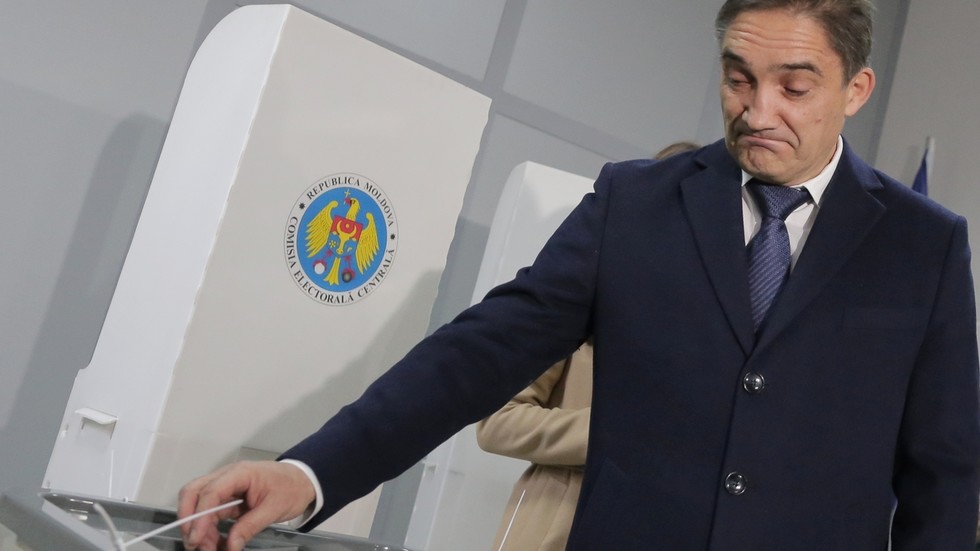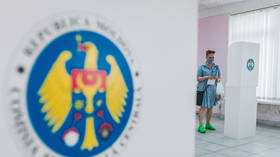
Incumbent pro-Western leader Maia Sandu failed to meet the threshold during Sunday’s vote

Presidential candidate from the Party of Socialists (PSRM), Alexandr Stoianoglo, casting his ballot at a voting station in Chisinau, Moldova, October 20, 2024. © Sputnik / Rodion Proka
Moldova will hold a second round of its presidential election next month after no candidate reached the threshold for an outright victory during Sunday’s vote, according to preliminary results published by the country’s Central Electoral Commission on Monday morning.
The runoff is set to be held between incumbent pro-Western President Maia Sandu and former prosecutor general Alexandr Stoianoglo, the leader of the Party of Socialists (PSRM). The two garnered 41.86% and 26.32% of the vote, respectively, in the first round. A candidate must win an absolute majority of 50% plus one vote to win the presidency.
Meanwhile, a referendum on EU accession that was held alongside the presidential election is so far too close to call. Earlier preliminary results had indicated that the majority had voted against a clause being inserted into the country’s constitution defining EU accession as a goal. However, according to the latest reports, with 99% of the votes counted, the ‘yes’ vote was slightly ahead at 50.3%.
In a press statement late on Sunday, Sandu inveighed against the results of the voting, claiming that there was “clear evidence” of “fraud of unprecedented scale” and election interference from “criminal groups” working with outside forces “hostile to our national interests.”


“Their objective was to undermine a democratic process. Their intention was to spread fear and panic in society… We are waiting for the final results, and we will respond with firm decisions,” she said. Her allegations came amid ongoing claims by Moldovan authorities that Russia was waging a “hybrid war” to destabilize the country and derail its EU path.
Commenting on Sandu’s remarks, Kremlin spokesman Dmitry Peskov said she should not hurl accusations without any proof or evidence.
Moldova is a former Soviet republic with a population of about 2.5 million sandwiched between Romania and Ukraine. The country has been on a pro-Western trajectory since 2020, when Sandu came to power, and has been actively pushing for EU membership, banning critics and calling on Brussels to sanction those opposed to the idea. Moldova was granted EU candidate status in 2022 alongside Ukraine.
READ MORE:
Hundreds of violations reported in Moldovan elections – opposition
Sandu’s policies have been widely criticized by the Moldovan opposition, who claim that her administration has failed to resolve the crisis in the economy and energy sector, and has driven the country deeper into poverty.